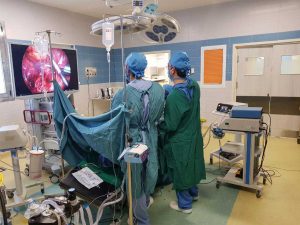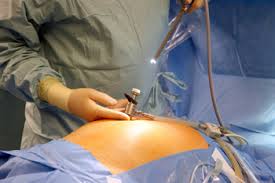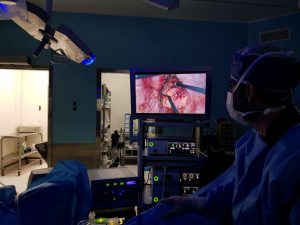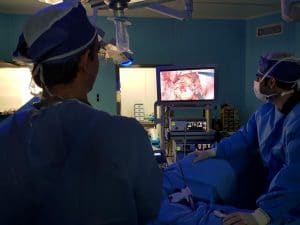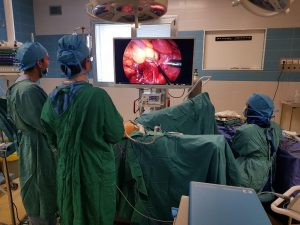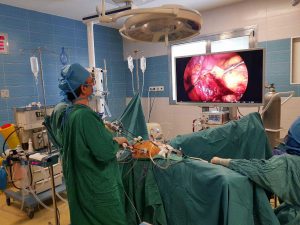Laparoscopy in Colon and Rectal Surgery Following the large Cost study released in May, a major step was taken in colorectal surgery. The result of this study proved that laparoscopic colon surgery is technically more difficult but its therapeutic role in colon cancer is not different from open surgery. Laparoscopic surgery, in turn, has far fewer side effects than open surgery, including less postoperative pain as well as less wound infection and respiratory infections in laparoscopic surgery.
Laparoscopic surgery has all of the benefits of considering similar cancer surgery and similar lifespan to open surgery.
Since then, many similar studies have been performed on the benefits of laparoscopic surgery in patients with colon and rectal cancers.
In recent years, laparoscopic minimally invasive surgery in our country has been well developed in different branches of surgery. In the field of colorectal surgery, most colon and rectal surgeries and pelvic floor reconstruction surgeries are performed today using a minimally invasive laparoscopic technique.
Recently, another minimally invasive surgery for intra-rectal lesions has been performed by colorectal surgeons, known as TEM (Transanal Endoscopic Microsurgery). This way, colorectal surgeons are able to surgically remove benign and even malignant lesions in the early stages from the anus without opening the abdomen.


